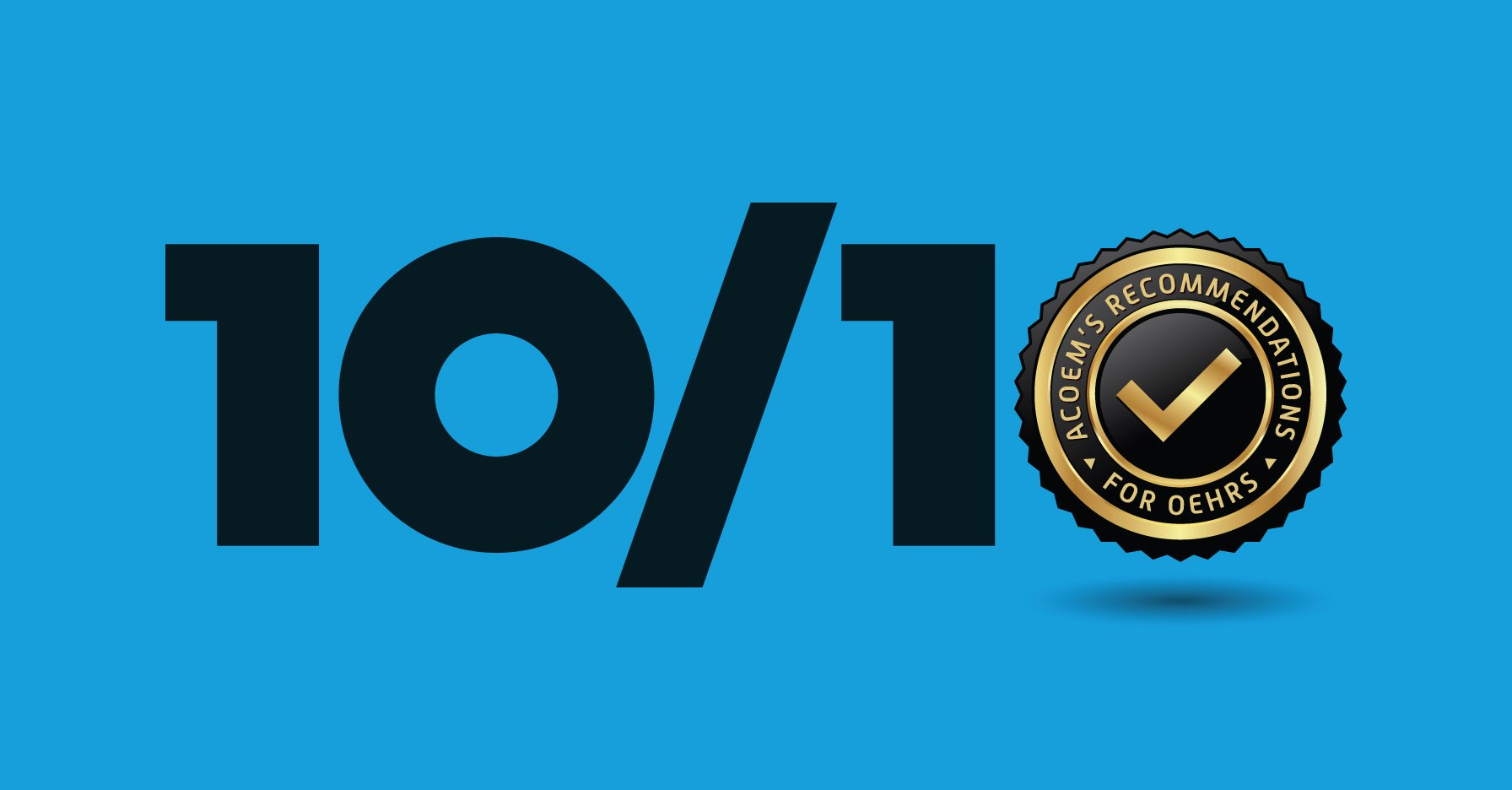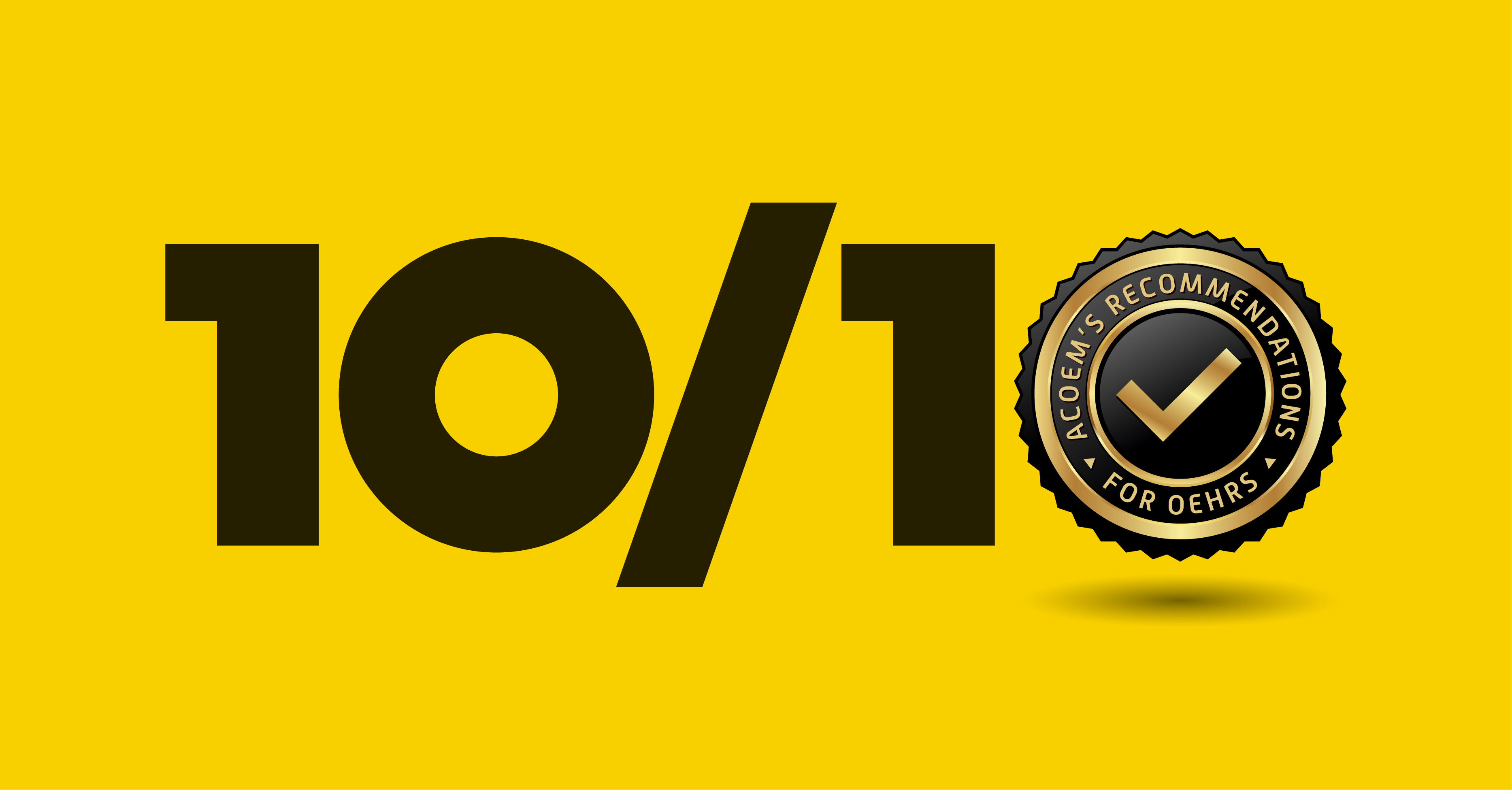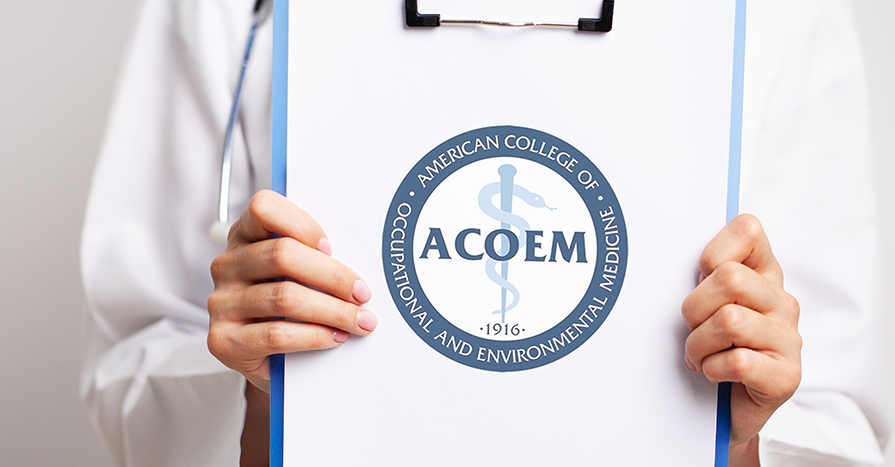New ACOEM guidelines for OEHRs underscore importance of data governance/stewardship
By Enterprise Health on Mar 5, 2025 3:38:25 PM

Whether an organization is selecting its first occupational employee health record (OEHR), confirming the functional adequacy of its current OEHR, or considering potential replacement options, the recently published ACOEM checklist delivers a helpful playbook for OEHR evaluation.
Health data governance and stewardship top the list
Given both the sensitive nature of employee health data and the constantly evolving legal and regulatory environment, the importance of governance and stewardship can’t be overstated. Employer organizations must be concerned with the careful management and appropriate retention of occupational health information given the wide range of requirements — including OSHA (and international counterparts), HIPAA, GDPR, US individual state and international country regulation, and domain and industry-specific guidelines and laws.
The new ACOEM guidelines call for OEHRs to facilitate health data governance and stewardship through controls that are transparent and accessible at the point of care.
To the extent possible, OEHRs should also help automate and streamline compliance, and enable occupational health operations to comply with confidence.
Enterprise Health functionality encompasses legal and regulatory compliance
Enterprise Health “bakes in” governance and data stewardship, building legal and regulatory compliance into functionality and workflows. Examples include:
- Encounter templates designed to capture data, populate and generate OSHA logs, forms and reports, as well as information required for DOT physicals, state-specific FROI forms, workers compensation forms and NHSN reporting.
- Employee health data securely is saved and managed, meeting data retention requirements for occupational and employee health as well as applicant data.
- Sensitive data is partitioned with restricted access, ensuring only authorized personnel are able to access and interact with certain data types (e.g. EAP program data, case managers, psychological assessments, drug testing results, seasonal vaccinators).
Technology must constantly evolve, in step with changing requirements
Enterprise Health works with clients, legal counsel, industry associations and regulatory bodies to stay abreast of evolving requirements, and constantly updates the Enterprise Health application to enable client compliance. Most recently, emerging artificial intelligence (AI) capabilities introduce a new and rapidly changing set of legal and regulatory requirements that again vary by industry sector and by country, and employer organizations are developing policy frameworks to help govern appropriate use. As AI development accelerates, organizations and their OEHR providers must keep pace.
Enterprise Health checks all the boxes on the ACOEM guidelines — including governance and stewardship.
See how your current system stacks up. Download the checklist.
You May Also Like
These Related Stories

ACOEM guidelines shine a spotlight on access, importance of relevant patient education materials

Newly announced ACOEM guidelines simplify occupational EHR system evaluation
